GROUP
Prof. Annelise E. Barron, Principal Investigator
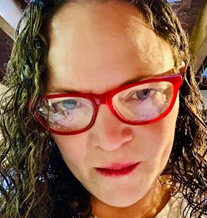
Dr. Barron was trained as a chemical engineer at the University of Washington (B.S.) and U.C. Berkeley (Ph.D., under the mentorship of Prof. Harvey W. Blanch), and was a Pharmaceutical Chemistry postdoc with Prof. Ken A. Dill (UCSF) and Dr. Ronald N. Zuckermann (Chiron Corp.). She has served on the faculty at Stanford since 2007, and prior to that, served on the Chemical & Biological Engineering faculty of Northwestern University in Evanston, IL for 10 years (1997-2007). Dr. Barron has been awarded the NIH Pioneer Award (2020), the Presidential Early Career Award for Scientists & Engineers (PECASE) through NIH / NHGRI (1999), the Beckman Young Investigator Award (1999), and the Camille Dreyfus Teacher-Scholar Award (1998), among other awards. Dr. Barron was the youngest scientist ever to serve on the Scientific Advisory Committee to the Director of the NIH, under Dr. Elias Zerhouni. She has more than 172 publications and a current H-index of 46 (Web of Science, All Databases), and serves on the advisory boards of several biotechnology companies. She is proud to be 1/4 Quechua (the Native American people of Bolivia), 1/4 Hispanic, 1/4 Swedish, 1/4 English, and 100% American.
Dr. Josefine Eilsø Nielsen, Postdoctoral Research Fellow
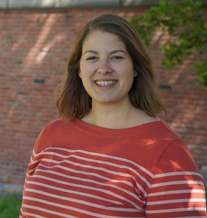
Josefine has a MSc in Pharmacy, and a PhD in biophysical chemistry from the University of Oslo. In her PhD she studied the effect of antimicrobial peptides (AMPs) on the structure and dynamics of lipid membrane systems using small angle X-ray and neutron scattering as well as neutron reflectivity methodology. Currently, Josefine holds the Novo Nordisk Foundation Stanford Bio-X fellowship, and is affiliated both with Prof. Annelise Barron at Stanford University and Prof. Håvard Jenssen at Roskilde University. Her current project focuses on investigating self-assembly and complexation properties of peptoids and peptides, interesting both for their antimicrobial activity as well as a potential key to understanding pathogenesis of Alzheimer’s disease and Type 2 Diabetes.
John A. Fortkort, Staff Scientist
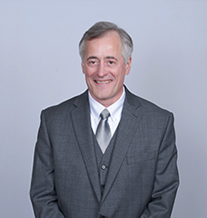
John is a registered patent attorney with almost three decades of experience. He has worked at various law firms, and served for 5 years as corporate in-house counsel for 3M. A chemist and mathematician by training, John has done extensive patent work worked in a wide variety of technical fields. He is a prolific inventor and has cofounded several startups. His research in the Barron lab is currently focused on photobiomodulation, antimicrobial and antiviral peptoids, and upregulation of cathelicidin gene CAMP expression.
Brian Bacacao, Life Science Research Professional 2

Brian received his B.S. in Biology from Arizona State University. He worked in the Santa Maria lab at Stanford University School of Medicine from 2019-2022. He joined the Barron lab in Bioengineering at Stanford University in 2022, and is interested in applying his knowledge of microbiology, cell biology, and animal science for translational research.
Jocasta Manasseh-Lewis – Research Student

Jocasta graduated from MIT in 2021 with a major in Brain and Cognitive Sciences and a minor in Biology. Currently, she is a Master's student in Bioengineering at Stanford University and her research interests include neurodegenerative diseases and synaptic plasticity.
Dr. Jennifer Lin, Research Engineer
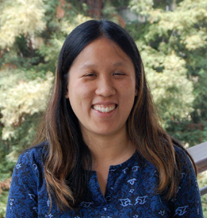
Jennifer received her B.S. in Chemical Engineering from Cornell University and Ph.D. in Chemical Engineering from Northwestern University. She is the current lab manager for the Barron lab and has experience in molecular biology and analytical chemistry. Her main research interests are developing antimicrobial peptoids as a topical treatment for chronic suppurative otitis media (CSOM), a collaborative project with the Santa Maria lab in the Department of Otolaryngology (OHNS), and investigating cathelicidin upregulation as a safe, effective therapy to prevent and/or treat Alzheimer’s disease.
Dr. Claudia Zielke, Postdoctoral Research Fellow
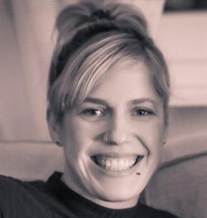
Claudi is an Analytical Chemist with education at the university level from the Universität Basel, Switzerland, Freie Universität Berlin, Germany, and Lunds Universitet, Sweden. Her main interest of research is investigating different kinds of biological compounds such as carbohydrates, peptides or nucleic acids on a molecular level using Separation Sciences and Light Scattering techniques. She was an Inclusive Excellence Postdoctoral Fellow at Santa Clara University, CA, before she joined the Barron Lab in February 2022. The focus of her current research is on the molecular interactions of LL-37 with different biomolecules.
Dr. Erwin Defensor, Staff Scientist
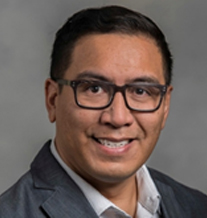
Erwin received a PhD with concentration in Behavioral Neuroscience from the University of Hawaii and a BS in Neuroscience from UC Riverside. He completed postdoctoral fellowship research training in the Department of Neurosurgery at Stanford School of Medicine. He is an in vivo pharmacologist with interest in therapeutic approaches for neurodevelopmental and neurodegenerative disorders, as well as brain injury and addiction. He has academic and industry experience in study/program management and has conducted projects across various therapeutic areas with leading pharmaceutical companies and early-stage biotechs. Erwin holds additional expertise in scientific product and applications for emerging in vivo technologies. He promotes the advancement of automated methods for generating digital biomarkers to accelerate the preclinical discovery pipeline.
Shirin Shamloo, Life Sciences Research Professional

Shirin is a final year post-baccalaureate graduate student with an undergraduate degree in English Language and Literature from King’s College London. She joined the Barron lab while transitioning away from a career in law, and became interested in pursuing a joint MD-PhD. Her research with Dr. Barron centers primarily on the use of photobiomodulation (PBM) as a therapeutic treatment for a variety of diseases, including neurodegenerative disorders and stroke.
Prof. Gandhi Rádis Baptista, Visiting Professor

Dr. Gandhi Rádis Baptista graduated in Biochemistry and Pharmacy from the University of São Paulo, Brazil, and holds a Master’s degree in Biochemical-Pharmaceutical Technology and a Ph.D. in Biochemistry from the University of São Paulo, Brazil, too. He is a permanent Professor at the Department of Biochemistry, the Federal University of Pernambuco, Brazil. Currently, he is a Full Professor at the Institute of Marine Sciences, the Federal University of Ceará, Brazil. His main research interests have centered on the study of gene transcripts of bioactive peptides and polypeptides from venomous marine and terrestrial organisms; on the function of pharmacologically active peptides from venomous marine and terrestrial organisms, their native and structurally modified sequences, and encrypted bioactive peptides found in proteins; also, on the biomedical and biotechnological application of venom bioactive peptides from marine and terrestrial organisms.